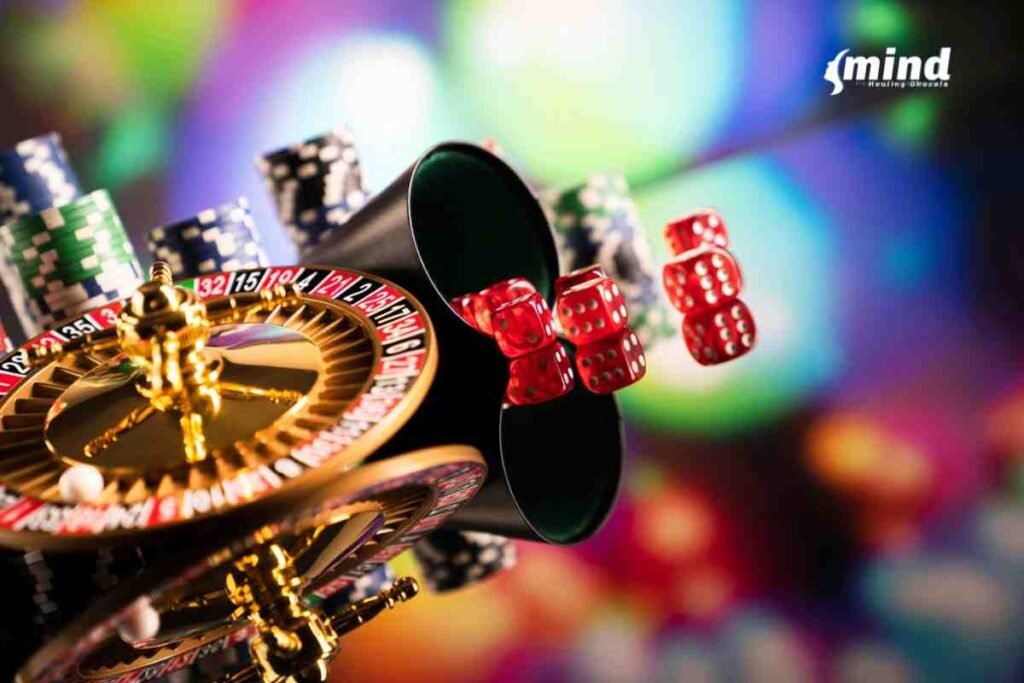What is gambling addiction? Gambling addiction also known as compulsive gambling or gambling disorder is a behavioral addiction where a person cannot resist the urge to gamble, even when it causes financial loss, relationship damage, or emotional distress. It is recognized by the American Psychiatric Association (APA) as a diagnosable mental health disorder.
Understanding Gambling Addiction
Unlike casual gambling for entertainment, gambling addiction involves a loss of control. The individual feels compelled to keep betting, often chasing losses, despite devastating consequences. This disorder functions much like substance addiction, as it rewires the brain’s reward pathways.
Link: What Is Addiction?
Signs and Symptoms of Gambling Addiction
- Constant preoccupation with betting or casino games
- Increasing bets to experience the same excitement (tolerance)
- Chasing losses by gambling more after losing
- Lying to family or friends about gambling
- Jeopardizing relationships, work, or education
- Borrowing or stealing money to gamble
- Failed attempts to cut back or quit
Why Gambling Is Addictive
Gambling activates the brain’s dopamine reward system. The thrill of risk and the chance of winning cause dopamine surges, similar to drug highs. The “near-miss effect”—almost winning—tricks the brain into wanting to try again, reinforcing the cycle.
Link: Dopamine Addiction
Causes and Risk Factors
Biological
- Genetic predisposition to impulsivity or addiction
- Brain chemistry differences in reward and impulse control
Psychological
- Stress, anxiety, or depression
- Personality traits like impulsivity or sensation-seeking
Social and Environmental
- Easy access to casinos, online betting apps, or lotteries
- Peer influence or cultural acceptance of gambling
- Financial stress or desire for quick money
Effects of Gambling Addiction
- Financial: Bankruptcy, debt, loss of savings
- Emotional: Guilt, shame, depression
- Social: Broken trust, family conflict, isolation
- Legal: Theft, fraud, or other crimes to fund gambling
Diagnosis of Gambling Disorder
According to the DSM-5, gambling disorder is diagnosed when an individual meets several criteria within a year, including preoccupation, tolerance, chasing losses, lying, and financial or relational harm.
Treatment Options
Therapy
- Cognitive Behavioral Therapy (CBT): Helps reframe thinking and break the gambling cycle
- Motivational Interviewing: Strengthens commitment to change
- Family therapy: Heals relational damage and builds accountability
Support Groups
- Gamblers Anonymous (12-step program)
- SMART Recovery groups for behavioral addictions
Medication
- Antidepressants or mood stabilizers may reduce urges
Link: Behavioral Addictions
Coping and Recovery Strategies
- Self-exclusion programs: Voluntary bans from casinos or betting sites
- Financial accountability: Allow a trusted person to manage money
- New hobbies: Replace gambling with healthier activities
- Mindfulness practices: Reduce impulsivity and cravings
Link: Mental Health Support
Parenting and Prevention
Teens and young adults are increasingly exposed to gambling through online games and sports betting. Parents can:
- Educate kids about risks early
- Monitor online activity
- Promote healthy coping strategies for stress
- Encourage non-gambling forms of entertainment
Link: Child Psychology
Final Thoughts
Gambling addiction is destructive but treatable. With the right support—therapy, community, and lifestyle changes—individuals can break free from compulsive betting and rebuild their lives.
References
- American Psychiatric Association (APA): https://www.psychiatry.org
- World Health Organization (WHO): https://www.who.int/health-topics/addictive-behaviors
- National Institute on Drug Abuse (NIDA): https://nida.nih.gov




1 Comment
Been using 188betbetting88 for a while now, and their customer service is pretty responsive. Had a question about a withdrawal and they got back to me quickly. Solid support team. 188betbetting88